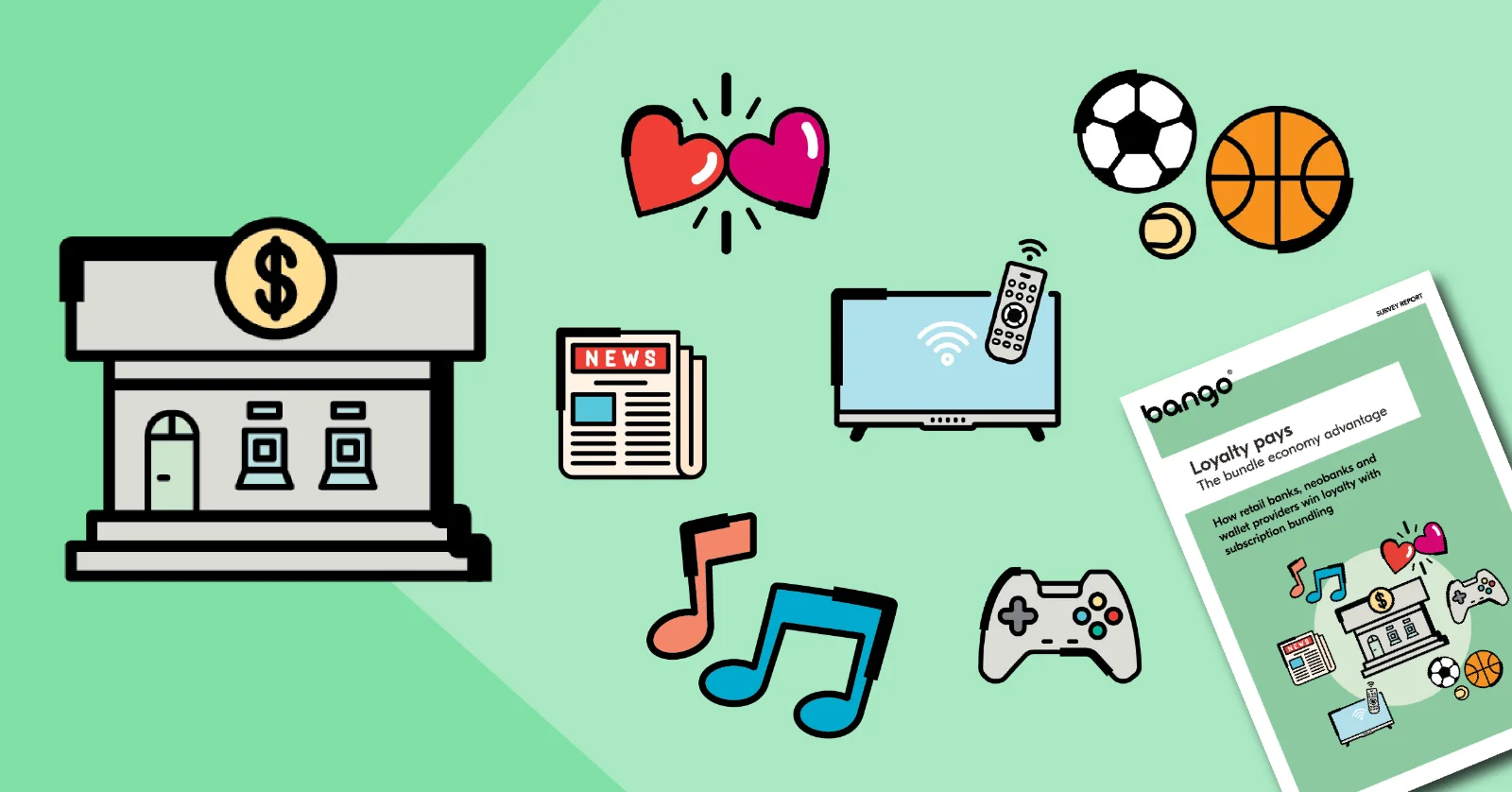Has the fastest growing smartphone platform just lost the tablet game?
by Sukey Miller

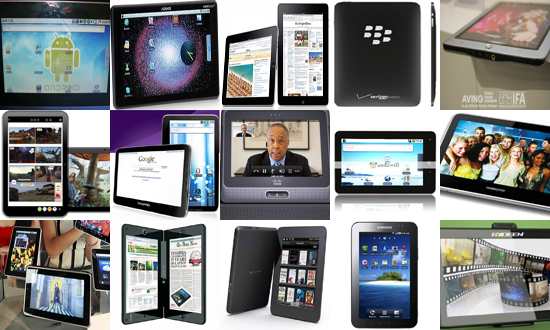 With Gartner forecasting that the tablet market is set to grow from 63.6 million sales in 2011 to 326.3 million by the end of 2015, it comes as a bit of a surprise that Asustek, Acer and Dell all announce they are out of the Android tablet market. One has to wonder whether their decision is due to an inability to compete with companies that are combining hardware with tightly integrated software, like Amazon and Apple, fear of further litigation from Apple or simply a lack of sales.
With Gartner forecasting that the tablet market is set to grow from 63.6 million sales in 2011 to 326.3 million by the end of 2015, it comes as a bit of a surprise that Asustek, Acer and Dell all announce they are out of the Android tablet market. One has to wonder whether their decision is due to an inability to compete with companies that are combining hardware with tightly integrated software, like Amazon and Apple, fear of further litigation from Apple or simply a lack of sales.
Apple has traditionally been the tablet leader and the combination of sleek hardware closely tied to their iTunes store has given them a head start. But Amazon have done an excellent job combining music, movies and games into their Android based Kindle Fire, and as probably the most experienced online retailer, nobody understands how to engage and sell to an online market better than they do. By combining this ability to sell online media with a low cost tablet they should be able to reach a much wider market than the high priced iPad – other manufacturers should rightly be worried. 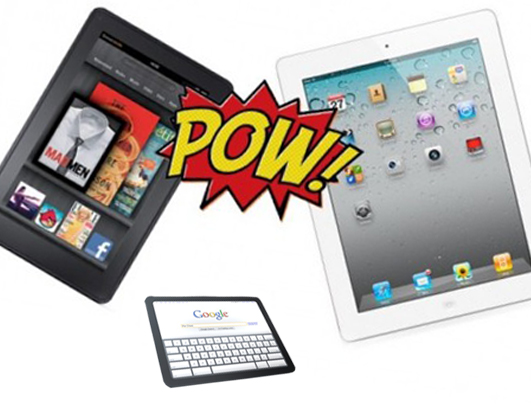 But is this reason enough for some of the leading PC manufacturers to step out of the tablet game? If it is, then it is a huge blow to Google and indicates that apart from heavily customized deployments like the Amazon Kindle Fire, Android on tablets is dead. For Google to thrive in the rapidly growing tablet space they would need to deliver a more closely integrated online music, video and gaming solution. But isn’t this what they are doing? Google’s well known YouTube is already moving into rental of movies and shows, while just the other week they launched Google Music. But does Google have enough retail experience to successfully sell digital services to consumers? Certainly their history of selling apps via Android Market has not been too promising and neither has the uptake of Google Checkout.
But is this reason enough for some of the leading PC manufacturers to step out of the tablet game? If it is, then it is a huge blow to Google and indicates that apart from heavily customized deployments like the Amazon Kindle Fire, Android on tablets is dead. For Google to thrive in the rapidly growing tablet space they would need to deliver a more closely integrated online music, video and gaming solution. But isn’t this what they are doing? Google’s well known YouTube is already moving into rental of movies and shows, while just the other week they launched Google Music. But does Google have enough retail experience to successfully sell digital services to consumers? Certainly their history of selling apps via Android Market has not been too promising and neither has the uptake of Google Checkout.
So what about litigation? I fail to see how Apple’s legal team can claim they invented the tablet; given the rich history of touch computing dating back beyond even the earlier Apple Newton. Apple may be able to scare major companies into redesigning their tablets, but why are those companies making their devices look like an iPad in the first place? I’m sure there are some great designers out there that can do a far better job than Jonathan Ive and his team. But is this threat enough reason to give up on such an important growth market?
Ultimately these large manufacturers are only going to invest in the Android tablet market if they can sell units, so are current products simply not selling? Did they rush to produce “me-too” products without clear understanding of the market? I certainly don’t see many people reaching for their Streak’s, Transformer’s or Iconia’s in meetings or on the train. But perhaps there are more Android tablets out there than we think, most of them do look like an iPad after all. But I suspect that people that want an iPad will buy an iPad. Android tablets cannot survive simply as lower price alternatives alone; they need to differentiate, both in looks and functionality. This is what Amazon has done with the Kindle Fire, they have innovated with media delivery – from books to movies. 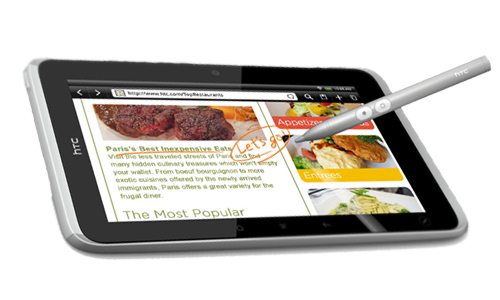 I applaud HTC for including a pen with their Flyer and Samsung for giving us the Note (or is that a phone?). I love that the Sony Tablet S includes innovative remote control capabilities. We need more of those sorts of innovations, but we also need better materials, that cheap plastic and iPad style is not helping the Android market, where are those great designers? And the same goes for the Android tablet user interface, it feels like it was designed by techies for techies, even the latest Windows Phone 7 user experience has more gloss and wow factor.
I applaud HTC for including a pen with their Flyer and Samsung for giving us the Note (or is that a phone?). I love that the Sony Tablet S includes innovative remote control capabilities. We need more of those sorts of innovations, but we also need better materials, that cheap plastic and iPad style is not helping the Android market, where are those great designers? And the same goes for the Android tablet user interface, it feels like it was designed by techies for techies, even the latest Windows Phone 7 user experience has more gloss and wow factor.
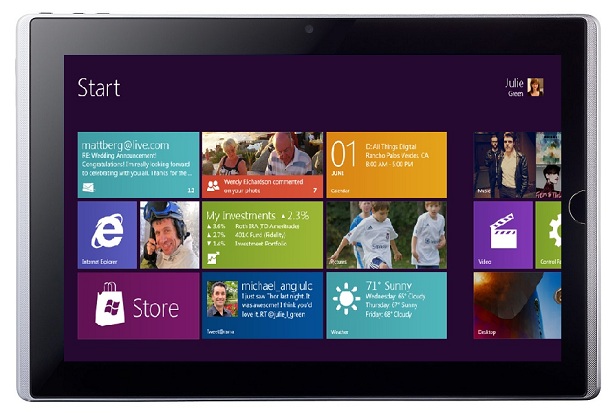 The big question is whether Windows 8 will be the tablet saviour for companies like Dell, Asustek and Acer. Will Microsoft’s new, phone-like, dynamic Metro user interface entice consumers away from static pages of Apple icons. Ultimately it will be down to Microsoft and their partners to deliver a complete, seamless tablet experience containing prominent, fully featured apps like Office and Photoshop, all with touch (and hopefully pen) input. If they can do this with 10 hours of battery life then sign me up.
The big question is whether Windows 8 will be the tablet saviour for companies like Dell, Asustek and Acer. Will Microsoft’s new, phone-like, dynamic Metro user interface entice consumers away from static pages of Apple icons. Ultimately it will be down to Microsoft and their partners to deliver a complete, seamless tablet experience containing prominent, fully featured apps like Office and Photoshop, all with touch (and hopefully pen) input. If they can do this with 10 hours of battery life then sign me up.
![]()
Subscribe to our newsletter
Get the latest subscription bundling news and insights delivered straight to your inbox.

